Sam Winchester and the Evolution of a “Freak”
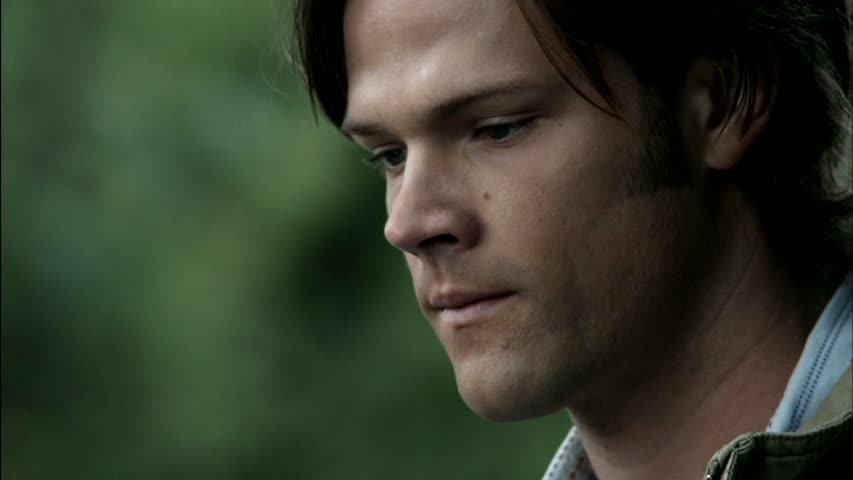
Sam Winchester and the Evolution of a “Freak”
In the world of Supernatural, the word freak connotes different, dangerous, evil, and nonhuman. Hunters throw around various permutations of the word to describe the creatures they hunt (freaks), the situations they find themselves in (freaky), or negative emotional states (freaked out). Of the Winchester brothers, Dean is particularly guilty of this; he’s referred to, among others, shapeshifters, werewolves, witches, angels, vampires, dragons, and even a phoenix and kitsune as freaks.
Sam, on the other hand, rarely uses the word to describe something supernatural. In fact, he most often uses the word in any form to negatively refer to himself. Following John and Dean’s lead, Sam internalized early on that freak simply meant wrong. Freaks were something to be feared and hated and hunted; they were different and did not belong. And Sam, well, he never really felt like he belonged anywhere.
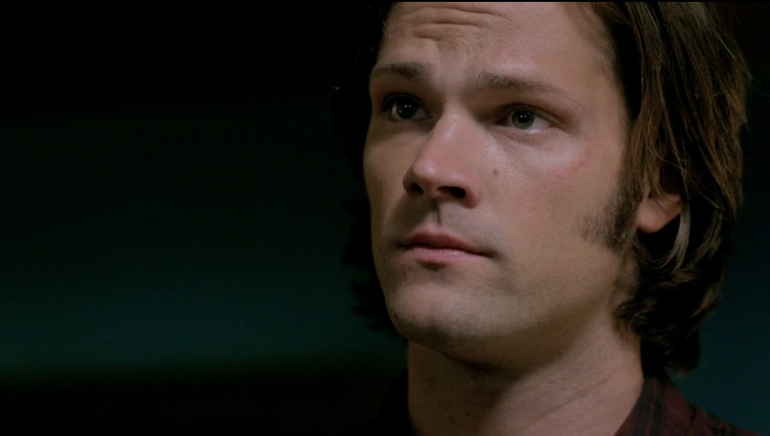
From a young age, Sam was sensitive about being different than his peers. As the youngest member of a family of hunters, Sam had no say in when the job would uproot them or where the next hunt would plant them for an indeterminate amount of time. Sam was the perennial new kid, barely getting the chance to get comfortable in a situation before being transplanted once more. He was acutely aware of how different his life was from his more stable classmates. Other kids didn’t spend Christmas in a motel room with a beer can Christmas wreath and gifts stolen from the house on the corner. Other fathers didn’t give their nine-year-old children .45s when they were afraid of the monsters in their closet—those children didn’t know how to use the gun either.
When fourteen-year-old Sam is beaten up by a bully in “After School Special,” Dean demands to know why Sam didn’t fight back. By this time, Sam’s known about the family business for nearly six years. He’s been training so could have, in Dean’s words, torn the bully apart.
“Because I don’t want to be the freak for once, Dean. I want to be normal,” Sam snaps in reply, effectively shutting Dean down. 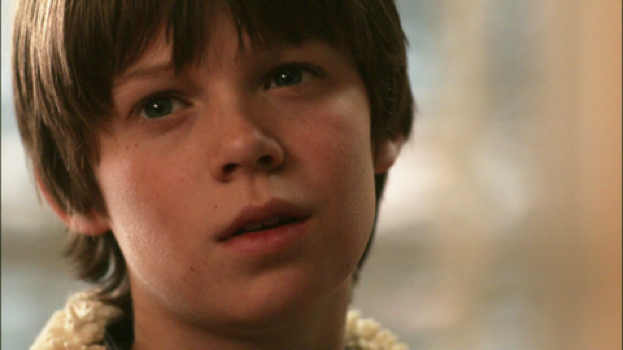
He would rather take the hits than prove himself any more different than he already has. Being different is terrifying for even normal teenagers, so for Sam, who is different by the nature of his supernatural-tinged life, one that he has no control over, it’s nothing short of hell. While Dean is content to embrace his differences from his peers since he’s thrilled to be following John into the family business, Sam is the opposite. Unlike Dean, who was forced to grow up far too early, Sam got a taste of a normal childhood without things that go bump in the night. That taste of normal was forcefully taken away from him that infamous Christmas in 1991. Old enough to recognize what he’d lost, Sam longed for that normalcy again and railed against anything that stood in the way—his father and the hunter’s life being the main targets of his ire. These are the things that mark him as different, as a freak.
Later on in “After School Special,” Sam confronts Dirk the bully once more, but it’s not until Dirk uses the taboo F-word that Sam fights back. “Come on, lose-chester. Let’s see what you got. Come on, freak! Freak!” Dirk crows.
Anger twists Sam’s face at the taunt, and he shoves himself off the pavement and effortlessly takes the bully down. No matter how willing Sam is to take the hits to put up a façade of normal for his peers, all it takes is hearing the word that he fears most to set him off. Sam has learned that freaks are monsters and must be killed. And Sam, who longs for normal with every fiber of his being, reacts violently to be labeled as his worst nightmare. Ironically, he’s labeled a hero by the rest of the school for doing what no one else could in taking down Dirk. That feeling of belonging is one of Sam’s few happy teenage memories.
Unfortunately, Sam’s few memories of fitting in are mostly tainted in one way or another. When he and Dean return to investigate a case at Truman High years later, Sam learns about Dirk’s troubled childhood and eventual suicide, and their relation to that fight, killing any pride the memory once contained. And even when a young Sam finds a peer to commiserate with, the joy is short-lived.
“OK, but be honest,” fifteen-year-old Sam says to Amy in “The Girl Next Door.” “I mean, moving all the time sucks. You’re always the new kid, and everyone always thinks you’re a freak.”
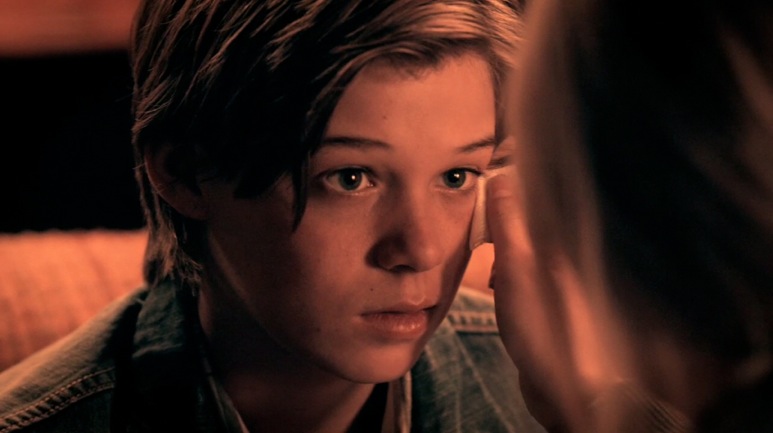
Sam’s distaste for the hunter’s life has deepened since his time at Truman; he does his best to speed through the research John and Dean need so that he can have some semblance of normal before they get back and uproot him yet again. He’s more interested in talking to the cute girl in the library than studying kitsunes.
“Sam, you are a freak,” Amy tells him. Sam’s momentarily stricken, his worst nightmares playing across his face, but she quickly clarifies: “But so was, I don’t know, Jimi Hendrix and Picasso. So am I. All the coolest people are freaks.”
For the first time, Sam gets a positive association with the idea of being different, of being a freak. This girl that he’s got a crush on sees that he’s different and she doesn’t care. In fact, she embraces his differences. And that’s enough to make him kiss her.
But Amy’s words, especially once she’s revealed as a monster herself, aren’t balm enough for the wounds already festering in Sam’s childhood. Amy being a kitsune only served to strengthen the tie between freak and monster for Sam.
But Sam didn’t only felt like an outsider among his peers. He also never felt like he fit in with his family. John was the consummate hunter, dedicated to the hunt to avenge Mary and Dean idolized the man, following obediently in his footsteps. Sam’s distaste for their life, for how it set him apart from everyone around him in one way or another, led to feelings of alienation and anger. Sam fought with his father because John represented everything that made him different.
“So what are you saying? That Dad was disappointed in you?” Dean demands in “Bugs.” The brothers have only been reunited for a short time and old wounds are slowly resurfacing. Sam is grieving for Jess and has been thrown back head-first into the life he tried so hard to get out of; it’s no surprise, then, that his bitterness starts seeping through.
“Was? Is. Always has been,” Sam replies matter-of-factly.
“Why would you think that?” Dean is nonplussed. He’s never been able to get into Sam’s rebellious mindset since being different has always been a good thing to him.
“Because I didn’t want to bow-hunt or hustle pool. Because I wanted to go to school and live my life, which, to our whacked-out family, made me the freak,” Sam answers angrily. He wanted to play soccer and do his homework like a normal kid, but never could. Normal was never in the cards for a Winchester, and Sam held onto his fear of being different and the bitterness toward his father into adulthood.
Of course, Sam’s constant anger and fights with John only distanced him from his father, which fed into a greater circle of alienation. He just became angrier, which led to bigger fights—the culmination being the blowup when Sam left for Stanford.
Sam left his family, the father he constantly fought with and the brother who raised him, to find some semblance of normal. His entire life up until then had been out of his control, but at eighteen he was a legal adult and he took first chance he had to make a change. He fled a life on the road hunting things out of horror movies in favor of the traditional rite of passage for someone his age: college.
Jess accuses Sam in the pilot of rarely talking about his family, but Sam had gone to Stanford to make a break from the life that isolated him from family and friends as a child. He wouldn’t and couldn’t talk about his former life. He had to cut ties with anything that threatened to destroy the new, safe life he was building where he fit in, and an unfortunate casualty of that was Dean.
But, in true Winchester fashion, Sam never could quite break away from what made him different, no matter how hard he tried. Before heading out with Dean in the pilot, Sam packs a wicked-looking blade that Jess undoubtedly had no idea was in their apartment. Despite not having even spoken to Dean in over two years, Sam naturally picks the life back up—like riding a bike, Dean teases. No matter how much distance Sam tried to put between him and the things that made him different, he never quite got away.
“You know, the truth is, even at Stanford, deep down, I never really fit in,” he admits in “Skin.”
“Well, that’s ‘cause you’re a freak,” Dean deadpans.
“Yeah, thanks.” Sam, for his part, takes comment as the brotherly barb it’s meant to be despite his negative association with the word in the past. At this point, Dean isn’t aware of Sam’s nightmares that preceded Jess’ death, which Sam later reveals in “Home,” so there’s no reason for Sam to fear Dean’s judgment. He keeps that secret partly out of guilt for ignoring the dreams and partly because he fears how Dean, a hunter, will take it. But right now, Dean is blissfully ignorant and just happy to have his little brother back on the road with him.
“Well, I’m a freak, too. I’m right there with ya, all the way,” he says.
Once Jess dies in the exact manner as Mary, though, all Sam’s illusions of normalcy are erased. He can’t help blaming himself for her death since he left her unprotected and unaware of his secret when he’d been dreaming of her death for days before it happened. The first hint of Sam having a secret he’s unwilling—or afraid—to tell Dean comes in “Bloody Mary” when Sam is able to summon Bloody Mary because of his guilt for Jess’ death. Though Dean prods, Sam hides his premonitions until “Home,” when he has to come clean in order to convince Dean to return to Lawrence. And though Sam fears Dean’s reaction to his developing abilities, especially knowing Dean’s black and white view of world, Dean’s simply afraid for Sam, not of him. He teases Sam about these psychic abilities—brotherly banter at its finest—but doesn’t judge him.
Sam takes the teasing well enough in patented little brother fashion, but once he and Dean start finding other psychics like Sam, his sensitivity toward being unusual in an already unnatural situation flares up once more. Max Miller was the first psychic they came across in “Nightmare,” but it’s not until “Simon Said” that Sam really takes exception to the “freak” label once again.
“I don’t know if going in and announcing that you’re some supernatural freak with a demonic connection is the best thing, OK?” Dean says while they’re on their way to the Roadhouse for information. But those are the exact words Sam has been dreading coming out of his brother’s mouth since revealing his fledgling powers in “Home.” Dean worries about other hunters seeing Sam as something to hunt, and Sam assumes it’s not a stretch for Dean to reach the conclusion. Dean may be sticking with Sam out of filial loyalty, but little could be worse for Sam than his brother thinking of him as a monster.
“So I’m a freak now?” he demands, hurt.
Dean immediately realizes he’s said the wrong thing and fails miserably at covering himself by slapping Sam on the leg and saying, “You’ve always been a freak.” He clearly didn’t mean to hurt his brother by the statement, but the way it came out still illuminated his innate prejudice against anything supernatural, including the unnatural, possibly demonic, abilities his brother is exhibiting.
Later, once the brothers have started investigating the potential psychic Andy Gallagher, Sam finally voices the fear and insecurity that have been gnawing at him since the tragedy with Max Miller: “The demon said he had plans for me and children like me. Maybe this is his plan. Maybe we’re all a bunch of psychic freaks. Maybe we’re all supposed to be —”
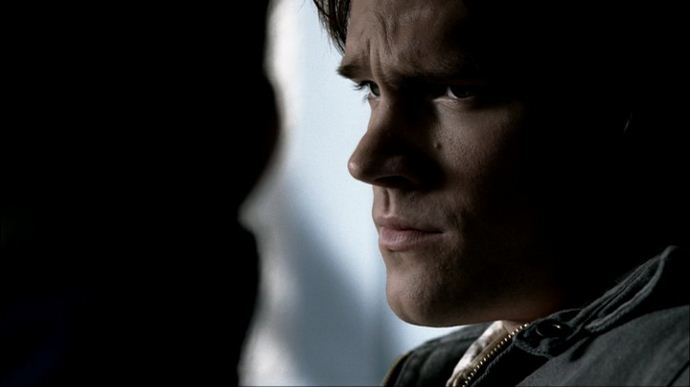
He refers to himself and his situation—which is completely out of his control once again, harkening back to the alienated childhood he fought so hard against—with venomous disgust. He’s calling himself the monster after having visions of someone with abilities similar to his own killing other, apparently innocent, people. And he beats Dean to the punch in the process; it’s easier to call himself the monster than hear the judgment from his brother’s lips.
But Dean isn’t judging Sam here. “What, killers?” he demands.
“Yeah.” That’s exactly what Sam sees the situation as. But Dean doesn’t agree.
Dean might be inherently biased against the supernatural, but he’ll always be biased in favor of his little brother. He’s not going to condemn Sam, even though that’s what his brother is waiting on: “So the demon wants you out there killing with your minds, is that it? Come on, give me a break. You’re not a murderer, Sam! You don’t have it in your bones.”
And though Dean might be willing to stray into the grey areas for his brother’s sake, other hunters aren’t so accommodating. They hold the familiar black and white viewpoint of John and (previously) Dean—the same view that fed into Sam’s insecurities and kept him from revealing his visions for as long as he did.
In “Hunted,” Gordon Walker pops up again—only this time he’s targeting psychics rather than vampires a la their first meeting in “Bloodlust.” After failing to assassinate Sam and kidnapping Dean, Gordon defends himself to the elder Winchester:
“I’m not some reckless yahoo, OK? I did my homework. Made damn sure it was true. Look, you’ve got your Roadhouse connections, I got mine. It’s how I found Sammy in the first place. About a month ago I found another one of these freaks here in town. He could deep-fry a person just by touching them.”
Gordon doesn’t think the psychics like Sam are pure human; he’s heard about the demon army the psychics are meant to lead and considers them traitors to humankind. They’re monsters—evil things that need to be hunted—just as Sam learned to associate with freak as a kid.
And Gordon isn’t the only hunter targeting Sam for his supernatural abilities either. “Gordon told me about you, Sam. About your powers. You’re some kind of weirdo psychic freak,” Kubrik tells a bound and beaten Sam in “Bad Day at Black Rock.” The religious hunter tortures Sam and would have shot him as the Antichrist if not for Dean’s well-timed (read: lucky) intervention. Despite the humorous takedown that ensues, this instance only reinforces Sam’s insecurities for the future as Dean, it seems, is the only hunter willing to bend the definition of freak—and that’s only because Sam is his brother.
But despite Dean’s insistence to the contrary, Sam never feels like he can really depend on his brother to not view him differently because of his abilities. His bias against the supernatural runs down to his very core, after all. That’s why he refuses to trust Ruby, a demon, though she claims she can save Dean from his deal. Dean might be willing to step into the grey areas for Sam, but that open-mindedness stops with blood.
And that disparity between the brothers after Dean makes his deal is the chink in their otherwise solid relationship that Ruby uses to divide and conquer. She needs Sam to harness his powers and takes advantage of both his desperation to save his brother from Hell and his insecurities about how Dean views him. Because, in the end, Sam’s worst nightmare is Dean seeing him as the monster he always associated with the unnatural.
“You don’t like being different,” Ruby tells Sam in “No Rest for the Wicked.” “You hate the way Dean looks at you sometimes. Like you’re some kind of sideshow freak. But suck it up because we’ve got a lot of ground to cover, and we’ve gotta do it fast.”
But Dean’s refusal to let Sam delve into the freak within dooms him and he ends up in Hell. Broken by grief and survivor’s guilt, Sam eventually turns back to Ruby, who starts training him to use the powers that he had once rejected with every fiber of his being. Sam Winchester, the prophesized Boy King, is in too much pain to care that he’s becoming what he feared most. Without Dean, it doesn’t matter; he’s already living his worst nightmare. What does adding one more horror matter?
But when Dean returns, awareness of what he’s doing slams back into Sam and he immediately lies when Dean asks him in “Lazarus Rising,” “So you’ve been using your, uh, freaky ESP stuff?”
The fact that one of the first questions off Dean’s tongue straight out of the grave is about Sam’s freaky (read: monstrous, demonic, evil) abilities is indication enough for the younger Winchester that Dean isn’t going to listen to his side of the story, so he lies. He’s just gotten his brother back from the Pit; Sam can’t bear the thought of losing Dean again, even if only emotionally this time. The four months after Dean’s death (on top of the recent six months only Sam remembers from “Mystery Spot”) were nightmare enough that the thought of a repeat is too much to bear.
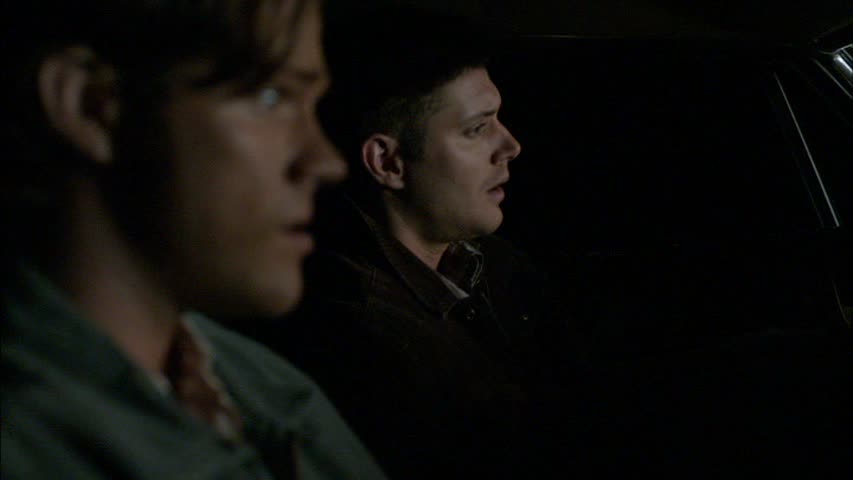
Sam’s lying out of the fear of Dean finding out about what he’s been doing with Ruby—honing his freaky powers—leads to a major blow up between the brothers in “Metamorphosis” after Dean walks in on Sam exorcising a demon with his mind. Sam’s worst nightmare comes true the moment Dean walks into that warehouse with disappointment and anger flashing across his face.
“If I didn’t know you, I would want to hunt you,” Dean declares furiously. “And so would other hunters.” Sam has no defense for that. He’s actively turning himself into the type of freak John had taught them to hunt—the type that Gordon and Kubrik targeted a year earlier.
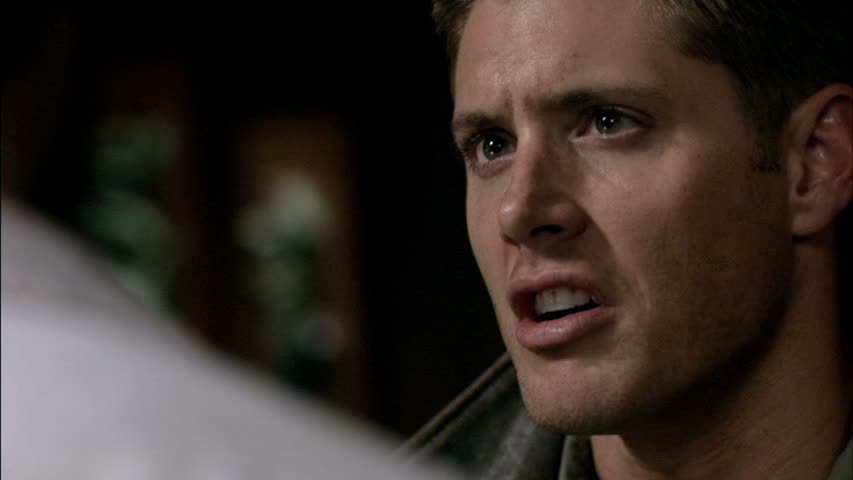
Though an old friend calling with a job interrupts their argument, it doesn’t simply end. In fact, the rugaru case only creates a further divide between the already distanced brothers as Sam finds himself identifying with the monster of the week in a way he hasn’t since they were looking for other psychics.
“You know, nice dude, but he’s got something evil inside. Something in his blood. Maybe you can relate,” Dean accuses. And it’s true. Dean has basically called Sam a monster to his face for using the abilities forced on him by Azazel’s blood. And it hurts just as bad, if not worse, than he’d feared it would. That hurt boils to the surface in the middle of the case. Dean won’t leave it alone and Sam is done with the judgment from the person whose opinion means the most to him.
“You want to know why I’ve been lying to you, Dean?” Sam explodes, taking Dean off-guard. “Because of crap like this.”
“Like what?”
“The way you talk to me, the way you look at me like I’m a freak!” Dean’s seen what Sam’s powers can do and has rejected him for it. He’s drawn the line in the sand in the black and white versus grey areas debate. And so, like a wounded animal, Sam lashes out.
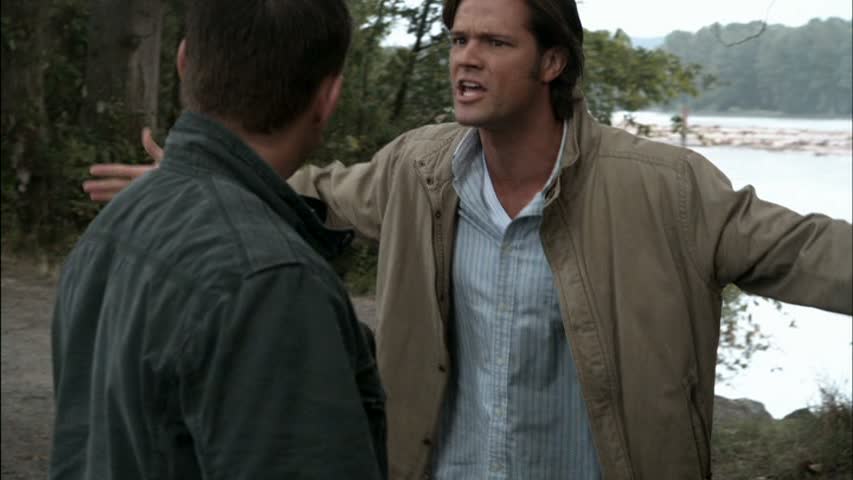
“I’ve got demon blood in me, Dean! This disease pumping through my veins, and I can’t ever rip it out or scrub it clean! I’m a whole new level of freak!” As far as Sam’s concerned, he’s calling a spade a spade. Dean’s already told him that he deserves to be hunted—that he’s a monster, a freak. He’s filled to the brim with self-loathing because he can’t reconcile his hunter instincts with his demon blood contamination. Who is he? And the only people the seem to care are polar opposites—Dean, the consummate hunter and king of the black and white, and Ruby, the demon who claims to remember her humanity and is teaching Sam to harness those hateful abilities.
“And I’m just trying to take this—this curse and make something good out of it. Because I have to,” Sam finishes, sounding a lot like the little brother that Dean left behind for the first time since his return from Hell. Sam had to harden himself just to survive after Dean’s death and it hasn’t been easy to take down that wall back down again. Being a freak became armor for Sam during those four months because he had nothing else. But here, with Dean right in front of him, Sam is a confused and hurting kid who is trying to make the best of a crappy situation. That Dean understands. So he backs off.
After this fight, the brothers agree to talk to potential rugaru Jack, to try to help him understand what’s happening to him so they don’t have to kill him. Sam has to believe that Jack can fight the monster inside; if Jack can fight the blood within him, maybe he can too. And Sam gives Jack every opportunity not to take the final, unforgivable step into monsterhood—into freakdom. But when he takes out their old friend and targets Dean for his next meal, Sam has no choice but to take him out. His hopes that he might be able to fight his demonic taint are dashed.
Still, Sam tries to fight against himself, against his freakishness, anyway. He gives up drinking demon blood and using his powers until he realizes that Dean, who is meant to stop Lucifer from rising according to the angels, is too haunted by Hell to do it. Sam, who is already partially transformed irrevocably, takes it upon himself to stand in for his traumatized brother. Hating himself every step of the way, Sam embraces the thing that made him different, the thing he hated about himself all his life, and topples down a slippery slope of addiction.
But it isn’t until Sam thinks Dean has completely forsaken him that he takes the final step that unwittingly releases Lucifer. In “Lucifer Rising,” Zachariah manipulates the voicemail Dean leaves Sam to play into his worst fears and insecurities. Sam wavers over his choice to side with Ruby and kill Lilith until he hears what he believes to be Dean’s true feelings about him:
“Listen to me, you bloodsucking freak. Dad always said I’d either have to save you or kill you. Well, I’m giving you fair warning. I’m done trying to save you. You’re a monster, Sam—a vampire. You’re not you anymore. And there’s no going back.”
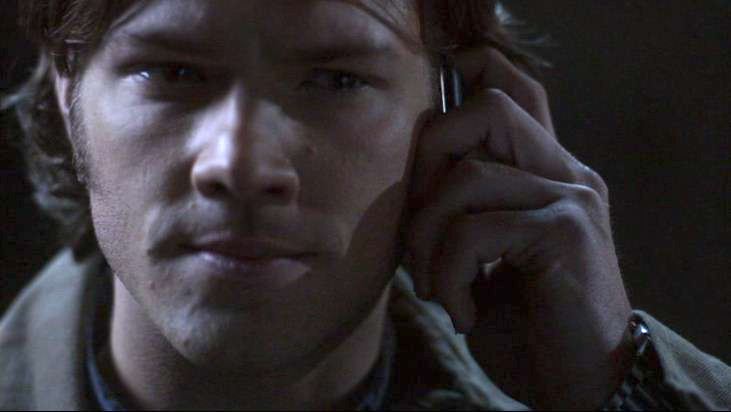
After that condemnation, Sam is sure he has nothing left to lose. The person whose opinion matters most thinks the worst of him, so there’s no reason not to take the final step in what he assumes is going to be a suicide mission.
And even then, after Dean arrives at the chapel to stop him, Sam hesitates. It takes Lilith’s (the first demon and therefore one of the original freaks) further prodding at Sam’s deepest insecurity to get him to finish her—and in so doing, break the final seal to Lucifer’s cage: “You turned yourself into a freak. A monster. And now you’re not gonna bite? I’m sorry, but that is honestly adorable,” she taunts.
After Lucifer rises, Sam is bursting with guilt and drowning in self-hatred. He made his choice to take the kamikaze mission to kill Lilith, completing his transformation to freak in the process, only to come out the other side. He changed himself and made far too many bad choices to be alive, and yet he is. He needs space from his brother, who he still thinks considers him a bloodsucking monster. Dean can’t trust him and Sam doesn’t trust himself after his descent into the darkness within that he’d long feared and fought against, so he takes himself out of the game.
Of course, that doesn’t last. In “Free to Be You and Me,” Lucifer brings the game to Sam—heartbreakingly in the shape of Jess—to claim him as him as his vessel. “What are you doing, Sam?” the Devil asks in Jess’ gentle voice. “Running away. Haven’t we been down this road before?
“Last time I wanted to be normal. This time I know I’m a freak,” Sam explains matter-of-factly. And there it is. He has come to self-identify as a freak. From fighting what was inside him to empathizing with the monsters they hunted to outright siding with a demon and setting Satan free, he’s run the gamut and ended up realizing he’s possibly the biggest freak on the planet.
And that’s why Sam can’t be with Dean—or anyone, for that matter—anymore; that’s why he has to burn his IDs and avoid all temptation to delve back into the life. He accepts that he’s gone from hunter to something that deserves to be hunted and willingly removes himself from the equation so Dean won’t need to be the one to take him out. There are plenty of other hunters out there who will be willing to do it for him—a couple of whom appear later in this same episode.
Though the brothers reunite, there’s an emotional distance between them the size of the Grand Canyon they’ve never visited. Dean can’t trust Sam after the demon blood and Ruby, and Sam is left waiting for Dean to make good on his voicemail threat. And Lucifer plays deliberately into that mistrust in a ploy to get Sam to say yes when the brothers confront him in “Abandon All Hope.”
“I was a son, a brother—like you, a younger brother,” Lucifer tells a shaken and vulnerable Sam, whose own older brother is unconscious after being thrown into a tree when the Colt failed to kill the Devil. “And I had an older brother who I loved. Idolized, in fact. And one day I went to him and I begged him to stand with me, and Michael—Michael turned on me. Called me a freak. A monster. And then he beat me down. All because I was different. Because I had a mind of my own. Tell me something, Sam. Any of this sound familiar?”
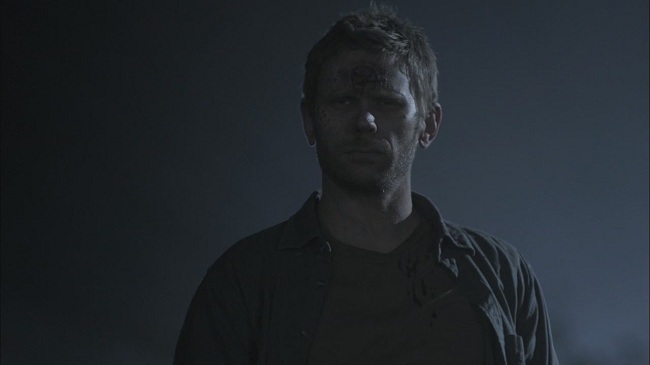
Lucifer deliberately draws parallels to their situations, relating his relationship with Michael to Sam’s with Dean and referencing past fights between the Winchesters. The fallen angel wants Sam to realize that he understands everything about him, that he gets him better than anyone else ever could because he has been in the same situation. They are made for each other. This only leaves Sam further shaken since he has no defense. His freakishness has transcended even his worst nightmares at this point. And it ratchets up his guilt another level since he’s simply lying in the bed he made.
The confrontation with Lucifer shakes Sam to his very core. In “Sam, Interrupted,” he and Dean try to take their mind off the loss of friends and their only chance at killing the Devil by taking a case at a mental institution. And when Sam starts hallucinating, his subconscious does its best to beat him down with the accusatory words and violence his heart believes it deserves to hear.
His mind concocts mental patients yelling at him, and Sam can do nothing to fight back against the words he himself believes: “Now we’re all gonna die because of you. It’s all your fault,” one says. “You killed all of us. Pathetic freak,” says another. “Freak!”
Once Dean defeats the wraith and restores their sanities, though, Sam comes to a realization about himself. “I am angry. I’m mad at everything. I used to be mad at you and Dad then Lilith and now it’s Lucifer and I make excuses. I blame Ruby or the demon blood, but it’s not their fault. It’s not them. It’s me. It’s inside me. I’m mad all the time and I don’t know why.”
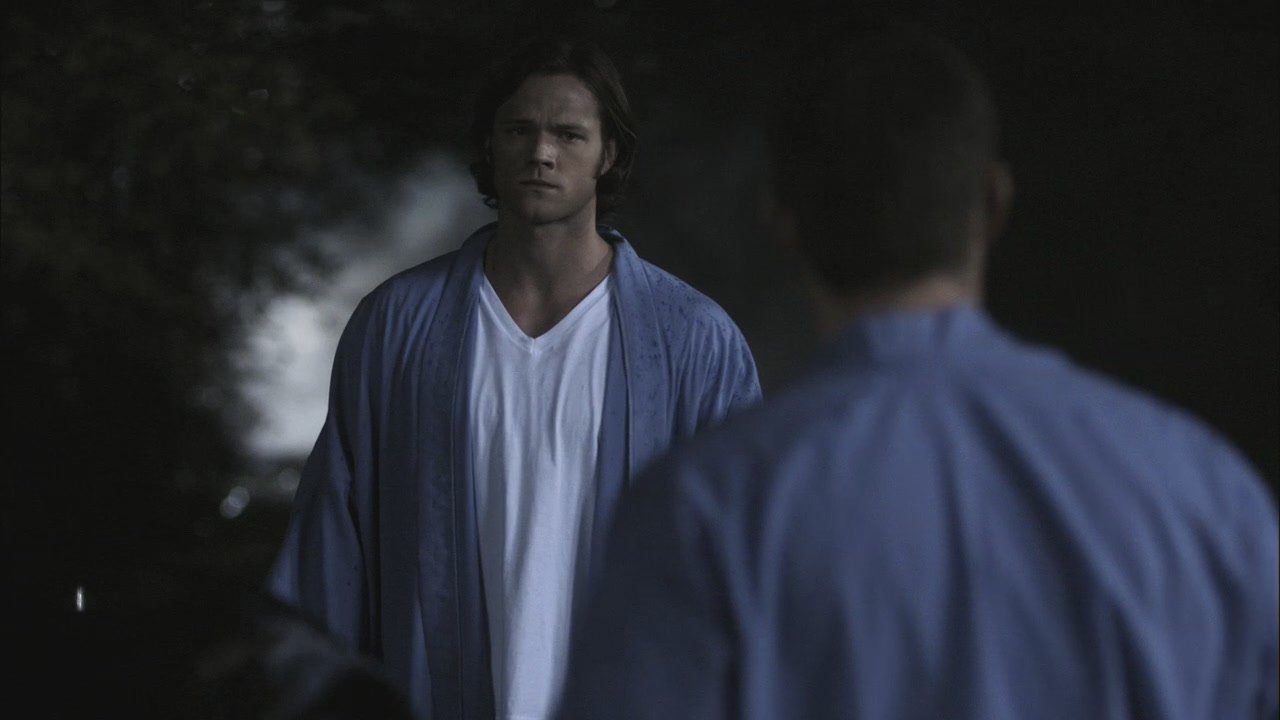
This is a turning point for Sam in the way he views himself and his situation. It takes until “Dark Side of the Moon” for him to really step up and take charge when Dean falters, but the moment outside the institution is hugely important for Sam. He realizes that his problem is not his supernatural taint; it’s not Azazel’s blood floating through his system, marking him as Lucifer’s chosen. It’s not the powers that gave him visions and he eventually harnessed to kill Lilith.
No, Sam’s problem is anger.
And that’s a very normal, human problem.
And thus Sam Winchester’s true quest for redemption that culminates in him falling into Hell to seal Lucifer begins.
In the end, it takes nearly two hundred years of suffering in Hell for Sam to come to any peace about himself, his life, and his nature. Once Sam’s memories of Hell return, he has a lot to process. But despite the unimaginable tortures he underwent, he incredibly never lost his humanity—his innate Sammyness, exemplified by him letting adult Amy go in “The Girl Next Door.” Like on hunts past, Sam empathizes with Amy—a monster, a freak, doing her best to control the darkness within to live a normal life and protect her loved ones. He understands that and wants to give her the chance to prove herself, a chance he never felt he had since his moves were manipulated by angels and demons alike.
Dean, though, isn’t so understanding of the situation. “Look, man, I get it, OK?” he says. “You meet a girl, you feel that spark—there’s nothing better. But this freak?”
Wallowing in his own hurts, Dean isn’t thinking when he speaks. But when Sam grabs his jacket and gets up to leave, Dean realizes the old wound he’s reopened and tries to backtrack—a familiar dance over the years from when he’d stick his foot in his mouth about this sensitive subject.
“I didn’t mean—”
Sam, though, is not having any of it. “Yeah, you did.” His brother’s prejudice against the supernatural is simply too deeply ingrained, and his history of trusting the supernatural in the past is filled with situations blowing up in his face. Sam gets it, but after everything he’s endured to atone for his wrongdoings, it still hurts to think that his brother sees him like that.
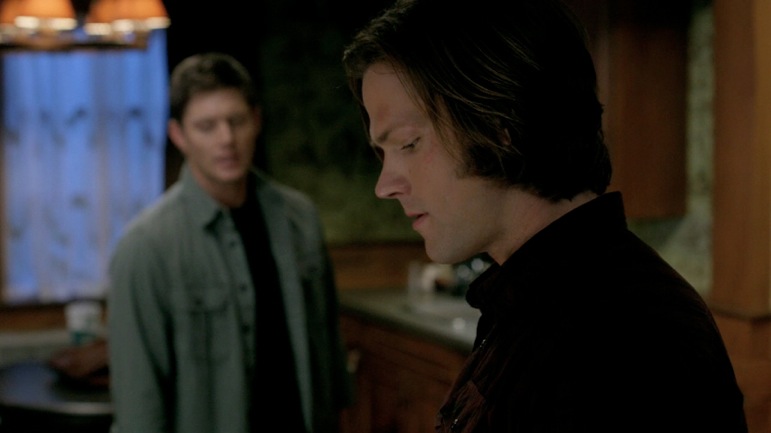
“Look,” Sam adds, “I see the way you look at me, Dean—like I’m a grenade and you’re waiting for me to go off.” He ignores Dean’s weak interruption, needing to get this off his chest. He knows he’s been acting crazed with seizures, hallucinations of Lucifer, and sneaking off in the night, but through it all, he’s come to some semblance of peace now that he can tell the difference between what’s real and what’s in his head.
“I’m not going off. Look, I might be a freak, but that’s not the same as dangerous.” Even though freak in the Winchester canon has always equated to monster, and therefore dangerous, Sam is doing his best to align himself with his childhood friend—the first person to ever give him the positive association with being a freak. He willingly aligns himself with the monster of the week; he’s not just empathizing, as he did in the past, but drawing a direct line between them in the hope of getting his brother to understand.
“I didn’t say—” Dean vainly tries to interject again, but Sam cuts him off once more.
“It’s OK. Say it.” Sam invites Dean to call him a freak, a monster, something to be hunted—an action that led to some of the biggest fights between them in years past. But this is a Sam with a new perspective. Nearly two centuries in Hell, apparently, will do that to a person. “I’ve spent a lot of my life trying to be normal, but come on. I’m not normal. Look at all the crap I’ve done, look at me now. I’m a grade-A freak. But I’m managing it. And so is Amy.” As much as it hurts him to think that Dean will never see him as anything but tainted, he accepts it and makes one more appeal to Dean to leave Amy alone—one more appeal for trust.
There’s something beautiful, yet tragic, about Sam’s state of mind at this point. Sam has finally stopped fighting the cards he was dealt and wallowing in what is completely out of his control. For so long he channeled his fear and insecurity about the F-word into anger, which only alienated him from those around him. The angry Sam of old is no more. There’s a sense of calm about him that is stunning in the wake of what he’s endured. Yet, tragically, he continues to think Dean sees him as a freak and has accepted that as the status quo.
The voicemail, after all, has never been resolved.


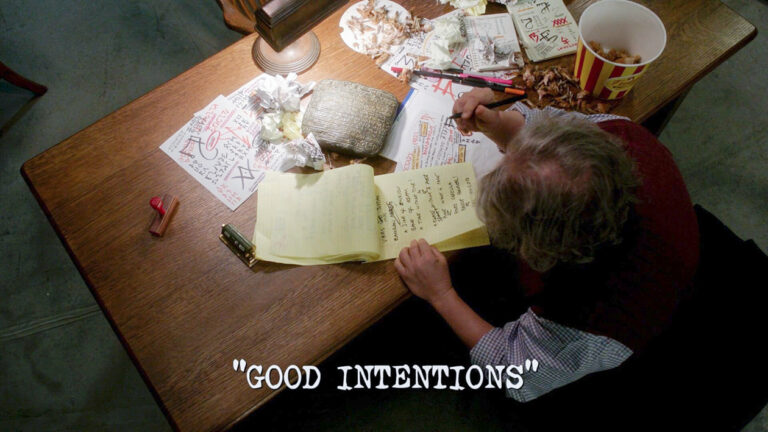
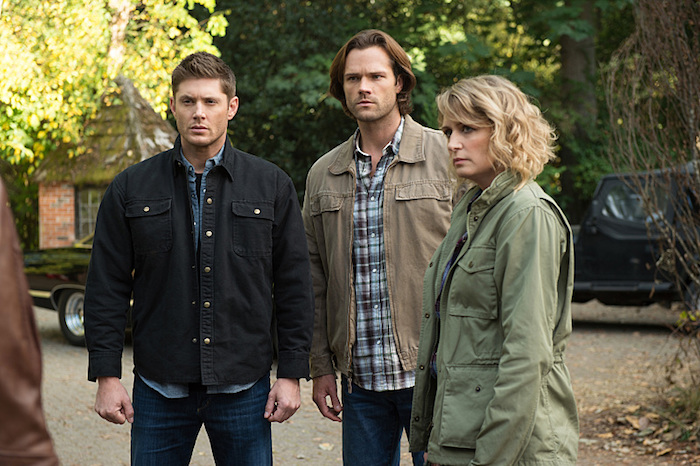
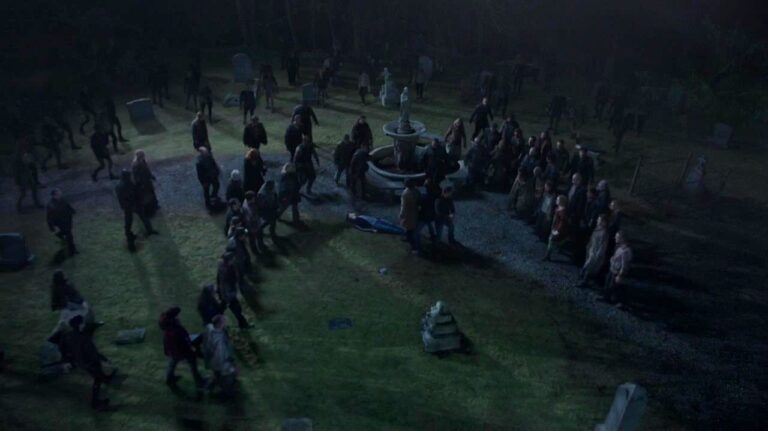
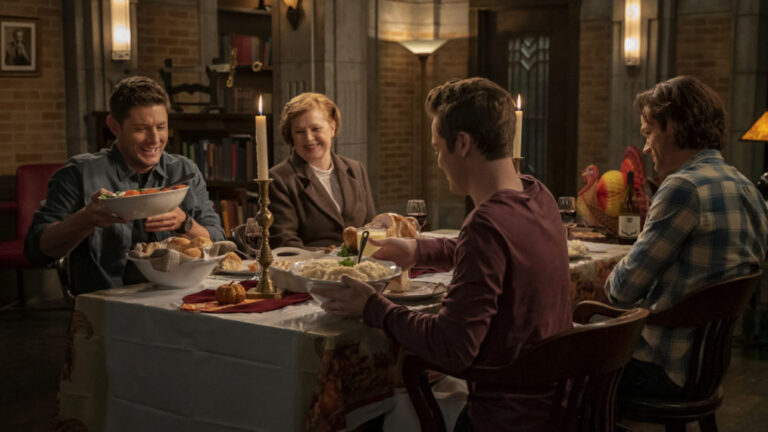
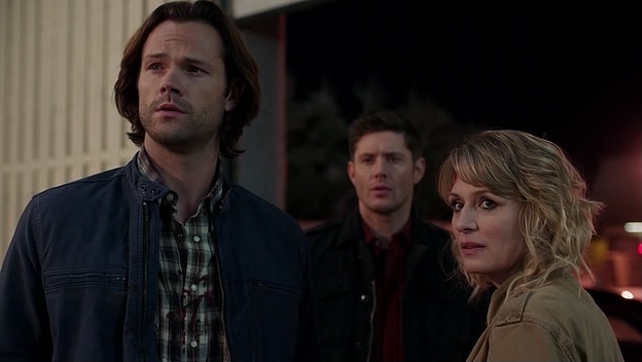
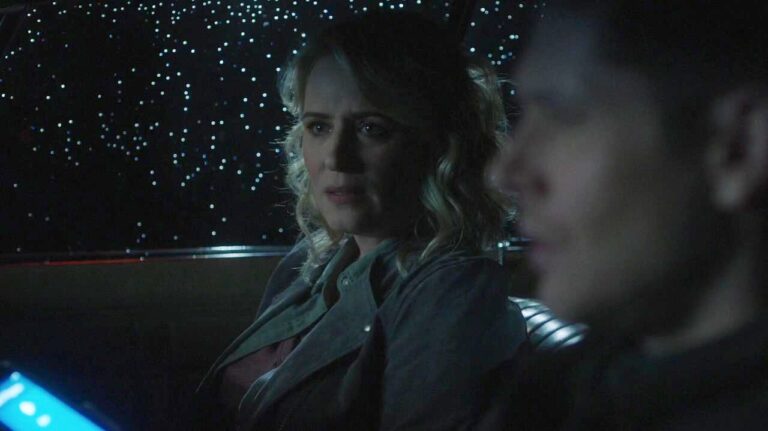
This is a very good article and I agree with most of it. I think the origin of the “freak” part of Sam was his bond with the devil. It was always Sam’s destiny to be on Lucifer’s side, and he instinctively felt as a kid that he was more like the monsters than the hunters. He felt alienated from his family because his brother and father were more like Michael, who was in a sense a hunter himself in that Michael captured and imprisoned Lucifer.
I agree that the demon blood wasn’t the root of this freakiness – it just amplified the monster traits (the anger, self-righteousness, etc.).
The interesting thing, though, is that on this show the demons sometimes seem more moral than the angels. Sam needed to let go of the anger and accept this freak side of himself and learn to turn it into a strength. I’m hoping we see more development in this area this season.
So glad you enjoyed it! The thing I found most fascinating in looking through episode transcripts for every permutation of “freak” I could find was how seldom Sam says it, in any shape or form, compared to Dean, who uses the word frequently. That more than anything, really got me thinking about what the word means to the show and the characters. There’s an innate bias there that will keep the brothers at a certain distance until they can both bridge it. Sam’s made the first step, but now it’s Dean’s turn.
I never thought Sam had anger issues, frustrations, yes, because Sam is a very empathetic individual but when you constantly give empathy and none or little is returned and your opinions are nearly always dismissed, then of course Sam is going to be frustrated and anger is the occasional by project.
Nor do I ever thought Sam was self righteous, that was Dean projecting. Dean rather focus on Sam’s faults than focus on himself and fix himself because it’s easier to focus on another and make demands, it’s much harder to heal one self. Sam’s so-called anger issue came out of the big blue in s5 and we were like,
To a certain extent I agree. In both cases these were areas in which what we were told didn’t match what we were shown. I think there was a lot of anger in season 1 toward John, and even some self-righteousness in a very old fashioned way, in that Sam in the beginning probably thought he was better than his family. I think that changed as he grew to understand John more and accept becoming a hunter. But we saw the opposite of anger in season 2, and I agree that Dean appears self-righteous a lot too.
Maybe we have different definition of what is self righteousness. Sam went through a teen age rebellion phase and wanted a say in his own life, what normal person doesn’t want that? Sam’s independence does not make him think he’s better than his family, I never saw any indication of that.
Sam is empathetic, which is why he is able to forgive his father and make peace with his memories and move on, like he is moving on post-hell. Dean on the other hand no longer idolize his father and seem to have residual anger towards John, and so he hasn’t moved on like he hasn’t moved on post-hell and he is overwhelmed by excess guilt.
I’ve heard frequent complaints that Dean is still the same where as Sam has changed and progressed as a character. This was echoed by Sam in “Like a Virgin” when he assumed that Dean never tried to live a normal life with Lisa and Ben because Dean appeared to be the same.
I think I’m not explaining myself very well. I, personally, don’t have a problem with Sam’s actions. Traits such as independent thinking are valued in the modern U.S. But when SPN compared Sam and Dean’s story to Lucifer and Michael’s, their actions were measured by a very old-fashioned, biblical value system. Personally, I don’t think Lucifer was wrong to disobey his father and not bow before humans if he didn’t feel it, but those are my modern values, not the values presented in the story, and Lucifer’s action was interpreted at the time as a display of self-righteousness. Make sense?
The Lucifer and Michael parallel to Sam and Dean were obvious make-up-as-they-go by writers since angels weren’t originally supposed to be part of SPN. Which is why season 4/5 were such ungodly messes with the brothers’ characterization.
By our modern standard Lucifer shouldn’t have to bow down to humans, but by our standards he shouldn’t have a big ol temper tantrum and try to destroy humanity in retaliation. Sam would never destroy the world and rather condemn himself to eternal torment to save the world and his brother. It felt like the writers were scraping the bottom of the barrel to find reasons why Sam would say “yes” to the devil but then finally gave up and dumped the “yes” crap on Dean.
I always felt like the show was really struggling in season five to try and come up with a credible explanation why Sam would say yes to Lucifer. After season four, Sam wasn’t the type to simply destroy the world by saying yes. The show started bouncing around trying desperately to make parallels between Lucifer and Sam.
Back in season three they tried pride, but after releasing Lucifer, Sam’s self esteem was completely wrecked and any pride he had was gone. So then the show tried self-righteousness, but again, that had been wiped out by his season four actions. The show then scrambled to anger, a trait that Sam really hadn’t exhibited very much at all. Sam was the one to hold back on killing monsters and tried to assess if they were dangerous. Dean lashed out physically when upset, Sam withdrew either into his own head or by leaving. We had to have Sam state in Sam, Interrupted that he had always felt angry and even then I was always left with a feeling of where did that come from? It was all very labored, trying to convince the audience that Sam would say yes because he was weak. The show knew they were heading to Sam saying yes in order to trap Lucifer, but it needed to make the audience believe he would cave for entirely different, less honorable reasons.
It was all rather a mess as far as Sam characterization went IMHO, but then I felt the same way in season four. Sam was allying with a demon and drinking demon blood because he needed to be doing those things, but we never got a look at exactly how the heck he actually started.
I’m hoping that this season will finally give us a better look inside Sam’s head.
It’s called making-it-up-as-you-go. To force fit Sam into the role of Lucifer’s vessel the writer had to take previous admirable traits i.e Sam’s independence and turn it into something that was selfish and turn his empathy into self righteous anger. It my opinion all attempts pretty much bombed because none of it was convincing except for those already predisposed to dislike the character and this was their holy grail.
Still I have to give the writers credit for threatening us forever with Sam going darkside when it was Dean who wanted to say “yes” to Michael and destroy half the world and it was Castiel who gladly pursued power corruption and nearly destroyed the world with it. Sam was just red herrings.
Oh, it was absolutely contrived. I always felt that the narrative of Supernatural was badly damaged by the writers strike. I have heard that the original plan was to have Sam go darkside saving Dean. If Sam had used his powers to save Dean and then retained them, a story of pride and power corrupts would have probably worked. It would have been closer to Castiel’s fall and because the audience saw Sam doing it to save Dean, Sam would have been more sympathetic.
I always supported the writers during the strike, but it really affected the direction Supernatural took to make up for the missing episodes. I think the result was detrimental to both the story and the characters.
Also, he was constantly surrounded by demons throughout his childhood steering situations in his life and ensuring that he never felt normal.
Very true. He never had the chance at normal no matter how much he wanted it, and for someone as sensitive to his differences from others as Sam, that just made him react poorly to his lot in life even into adulthood.
well written thought! thanks!
Thank you, glad you enjoyed it! It was a fascinating topic to work through 🙂
Thank you so much for taking the time to write this down. Since I read that you are working on this essay about “freak”, I almost couldn’t wait for this. I think the character of Sam is in need of those deeper explanations and I would like to show all those people who are judging Sam and tearing him down to read this. I would like that the writers would give Sam more possibilities to react, to show how he feels and that he could meet people who can help him, like him as a person.But really…when someone has an opinion, and doesn’t want to change it, there is no way to do this. But for those who are interested and in the characters of both brothers I think this is really an eye-opener to truly understand the character of Sam Winchester. The word “freak” stands out for me since a long time in Supernatural (I have sometimes troubles with english because I am from Germany) and wanted really to know why sometimes “freak” is used like “normal” and sometimes “freak” is a word where Sam has troubles with and its hitting him to his core. Now Sam has made peace with this part of him and he even accepted that he is a freak in an almost peaceful manner (although I think he is for me the most representative of humanity, of human mercy, empathy into others. Now after the last episode, its probably like a safety-net is pulled under his feet. His core was build up in trust -in Dean. Hopefully we see that they both rebuild this “bridge” to each other. I can’t wait for next episode.
Sometimes I think both of them are like that couple where one is blind and one is mute, but together they move forward.
But since the show give us so little insight in Sam, insight in his emotions and emtional state and feelings, I am really glad that you took the time for this essay. I even copied at the CW side hopefully you don’t mind!
I’m so glad you enjoyed it! As a writer, I’ve always believed there is power in words, and this essay was really the perfect representation of that–this one word has really haunted Sam through his life. Sam fascinates me, and I agree that he’s a very human character. I had a lot of fun exploring the contradictions within him here. And yet it’s only a small bit that can be said about him.
And thanks for sharing it at the CW!
One of the most interesting parts of the show has been the evolution of Sam’s character. (It’s one of the reasons I prefer TV series to movies–you can get seven years of character development rather than just two hours.) This was a very thoughtful and insightful look into the evolution through the thread of “freakishness.” It’s interesting to think that Sam would’ve been an earnest, bookish, sensitive, compassionate, honest boy scout of a guy, if not for those seeds of freakishness the Yellow-Eyed Demon planted in him when he was only six-months-old. And over the years, it has been interesting to see the boy scout duke it out with the freak, and what happens with his character when one or the other comes out on top.
When I was in college I took a Milton class. One of our assignments was to choose a word and write an essay about its use by Milton. This meta reminds me so much of that!
You did a fantastic job analyzing the use of the word freak throughout the seasons. This was a great read.
I think it’s interesting that Sam is so sensitive to the word “freak” since SAM is the one who used the term first in this show, to describe his brother DEAN, in the Pilot.
Sam called Dean a “freak” first. And Sam only saw himself as a freak because he was actually the NORMAL person in a family he viewed as an affront to his “ideal” safe/normal suburban life. Sam wanted to escape his family in order to live a “safe/normal” life.
But now that HE is apparently the one who is different, he’s suddenly sensitive to the “freak” term? After Sam was the one to use it on his brother first? Yeah… okay then. 😐
First I tend to find that most pilots get contradicted along the way. They are a first pass trying to get the show sold. Once it is sold, the characters get more thought and their motivations become more set.
Also, Sam called Dean a freak in the last few hour of normalcy that Sam had. Sam had finally found a place where enjoying studying and not enjoying violence was accepted and NOT freakish. At that time, the dreams Sam was having about Jess dying were just that, nightmares. They were nightmares that could easily be explained away by thinking that the stress if wanting to get that full ride was bringing up memories of the tragedy that destroyed his family. Plus, DEAN never minded being called a freak. AT THAT TIME Sam only thought himself as a freak in relation to his family and their lifestyle. Not the rest of the world. So AT THAT MOMENT, Sam had overcome his identification with the word freak. He was able to joke about it. Once his nightmares turned out to be true and his chance at being safe moved farther and farther away the freak designation hit him harder than before.
I think this essay was very insightful and explained a lot about Sam and his mindset. One off hand remark in the Pilot doesn’t discredit the basic thesis.
Thank you, I am in complete agreement with that assessment. I did mark it down when I was noting “freak” throughout the show but didn’t add it here because it was a rather innocent moment of brotherly banter (a la Dean calling Sam and then himself a freak in “Skin” [which is mentioned here], which Sam didn’t take exception to). It wasn’t until he was afraid of the judgment that came along with the word that the sensitivity really kicked back in. He’d moved past that fear from childhood by breaking away from the life and, in that moment, he was just being a little brother more than anything.
Oh I don’t agree that the Pilot is somehow exempt from the show’s canon. Not at all.
To the contrary, I think Sam was very willing to call Dean (and John) “freaks” because he was so intent on separating himself from his family, and that has been part of Sam’s characterization throughout the show. Sam thought of himself as an outsider because he was normal, and only within the Winchester family would someone who wanted to study and go to school, feel like a freak because he wanted normal/safe.
But while Sam used the term to separate Dean and John from himself, Dean always used the word as a term of endearment regarding Sam. He called Sam a “freak” and then immediately confirmed that it was [i]okay[/i] because he, Dean, was a freak as well. They were freaks together in the Winchester family, and Dean thought it was something that bound them together.
But oh yes, Sam definitely didn’t want to be seen as a freak, and that much has always been apparent. He wasn’t happy being a freak [i]Winchester[/i], like his dad and his brother, or even a hunter … well not until after John was dead, and only then did Sam begin to embrace the hunter life.
Others did view Sam as “different”, but then again, Sam always viewed his own family as different and as something he didn’t really want to be a part of most of his life. Sam can’t help being born with some supernatural abilities or what was done to him by supernatural entities as a child, but Sam also brought some of this upon himself by the choices he made (i.e. Ruby).
This was a very good read, I enjoyed it very much.
Now Dean is my favorite character and I love Sammy to pieces because he always brings out the best in Dean, but the one issue that always nagged terribly at me is whether or not Dean fully accepts Sam for who he is. Given Sam’s reluctance to include Dean on the hunt to find Amy, I’m guessing Sam knows this too. The “freak” part doesn’t help one iota.
Dean loves Sam dearly, no doubt, but for far too long he’s been more like a father than a brother to Sam. A child is far more accepting of their parental figure because of idolization. A parent has expectations and guides the child to fulfill said expectations. Dean’s sometimes impossible high expectations of Sam could never be fulfilled under normal circumstances, but even more so because that “freak” nature will always get in the way due to Dean’s ingrained bias and suspicion.
Supernatural is mainly told from Dean’s POV and it’s gotten to the point that Sam has become something of a mystery because Dean doesn’t ask or want to know (so thank goodness for articles like this!). IF we want to know Sam better then it has to be through Dean and that requires his character to be more empathetic and accepting of Sam. I felt deeply for Dean in season 5 over his turmoil on whether or not to say “yes” to Michael. But later I was, “wait, what about Sam? How does he feel about being destined to host the greatest evil of all time?” It must be terrible for Sam but because Dean never asked, we don’t get to know Sam’s thoughts on such significant matters. This makes Dean look like a selfish jerk that he doesn’t even want to know how this effects his own brother. Another reason why I hated season 4 and 5 because it was basically character assassination of Dean.
“I know you don’t trust her, but trust me†asked Sam, and when Dean replied “okay”, the look of hope and trust and surprise in Sam’s face said a lot. Sam was so happy, it was as if a burden was finally lifted that that burden wasn’t even his freak nature but Dean’s lack of trust in him.
“I can’t do this anymore.†Sam can’t keep struggling to prove or convince Dean, especially now when hell memories are always threatening to take him down, as confirmed by LeviSam whom even he wonders how Sam can still be walking. Sam is a kind and forgiving soul which is why I believe he was a prize target for YED, demons, and angels. But I can’t decide if Dean even realize that Sam’s goodness and resolve are far more powerful than any demon blood or the hell connections. This goes back to Dean’s own personal issue that is the source of the problem and his apparent refusal to accept his brother for who he is and not what he wants him to be.
Yeah, that unresolved voicemail. This is the reason why SPN blogs I’ve come across has picture of Kripke burning in hell fire regarding that very issue.
Great article Purplehairedwonder! I’ve often been intrigued by what a loaded word “freak” has become in the Supernatural universe. And it has such different meanings for Sam & Dean. For Sam, it has come to represent everything he hates about himself, his hunting life, and the demonic destiny that was forced upon him. For Dean, it remains a catch-all phrase for anything supernatural, although he does usually use it in a pejorative sense.
I don’t think Dean fully appreciates what a trigger word it is for Sam though. I think if he understood that, then he’d stop saying it. Because, as you said, Dean is never afraid OF Sam and his powers. However, he is always afraid FOR Sam, and the threat those powers pose for his little brother.
However, I’m not surprised that Dean doesn’t realize just what a loaded word this is for Sam. That’s the beauty of both language, and relationships – that the same word can convey two very different things.
For instance, just think of the word “girl”. As an adult female, I’ve been called a girl, and it’s meant to be demeaning and derogatory. I was called My Girl Friday by a coworker. Trigger!!! I reacted in a rather Sam-like fashion. But, a few months later I was called a “little girl” by a person who was nearly 40 years older than me, a foot taller, and a complete gentleman. He was just invoking the language of his generation, and the very obvious fact that, to him, I was a little girl! Think of him as Dean, leaning over and saying “I’m a freak too”. No offense meant, and none taken.
I think the biggest problem for Sam & Dean is how they completely misunderstand how they appear in each others eyes. Sam fears being a supernatural freak to his beloved, idolized older brother. Dean fears being seen as nothing but a dumb, brute killer by his beloved younger brother.
They need to actually express those fears (ha! Like that’s going to happen!). Barring that, they could sure use a good thesaurus.
[i]Dean immediately realizes he’s said the wrong thing and fails miserably at covering himself by slapping Sam on the leg and saying, “You’ve always been a freak.†He clearly didn’t mean to hurt his brother by the statement, but the way it came out still illuminated his innate prejudice against anything supernatural, including the unnatural, possibly demonic, abilities his brother is exhibiting.[/i]
I don’t agree. The problem, with Sam, is that he’s always had this chip on his shoulder about being viewed as different. Being a [i]Winchester[/i] meant being a “freak”. But while Dean always embraced the lifestyle and being a freak, Sam most definitely did not. He grew to resent John (and probably Dean) for not being able to live a “normal” life.
So when Dean identified Sam as a “freak” in this example, he isn’t judging him like a supernatural monster, he’s telling Sam it’s okay to be a freak because Dean views himself that way as well, as he’s said. It’s only when Sam began to ACT in ways that could define him as a “monster” (i.e. drinking demon blood) that Dean called Sam out for acting like a monster.
And the thing is, Sam had no problem pointing his finger at his “freaky” family before he identified as a freak himself. Sam hated the hunting lifestyle, he hated that he couldn’t have a “real” Thanksgiving and he hated the beer can Christmas wreath. Sam didn’t want to be part of this freaky family.
But Dean loved and embraced this about his family. Dean had no problem embracing his inner-freak (and he has always been the one to identify with the fringe of society in general) and that’s why he didn’t understand why Sam developed this tendency to always chafe at the “freak” label. To Dean, Sam not embracing the Winchester’s freakiness equaled Sam REJECTING his family, and Dean.
Sam’s situation with the YED was obviously difficult on all of the Winchesters. I think Dean always strives to give Sam the benefit of the doubt. But when lines are crossed (i.e. demon blood drinking) Dean has had to draw his line in the sand. I do think Dean has come to realize that Sam is sensitive to being viewed as different/monstrous because of “supernatural” influences, but the “freak” thing isn’t quite so clear because it’s something Dean sees in himself as well.
And as far as Amy… I actually think Dean saw HIMSELF in Amy. Dean views himself as a cold-blooded killer and as someone who cannot change who he really is. And although I do think she needed to die, because she is a monster who kills, I also think Dean was projecting his feelings about [i]himself[/i] onto her, and his self-hate (especially apparent in Dean after Hell and after Lisa/Ben) was a big influence on Dean’s decision to kill her. And this is what led into the trial and the guilt issues Dean is now struggling to deal with.
I would agree in your assessment if i am just reading the words but if we should believe in the acting of the actors then what I saw was a lame cover up by Dean…
what i mean to say that it did not feel like acceptance from dean as he himself did not look convinced..I believe its not just the words uttered but the situation coupled with the actors expressions which tell me what the dialogue actually means
Fantastic article! I too wish everyone would read this analysis (and the comments) and get some insight into both Sam and Dean. Anger is our biggest problem in this world and it manifests in so many ways (depression is anger at the self, pain is anger at the situation). I so long for some thoughtful and constructive conversation between the brothers–even if it’s an argument! Can’t wait until Friday!
A very insightful essays on a matter that I’ve been thinking about a lot since I started watching the show, and I don’t agree that the show is told just through Dean’s pov and so you can’t tell Sam’s emotional state and issues if not through Dean’s eyes. I never had a problem in feeling Sam’s fear to be/appear like a freak, I always understood him feeling “different”: from his family, from “normal” people. And that most of the issues between him and Dean sprung from his fear to be viewed by Dean like something “freakish”, to be rejected by the only person whose opinion (about him, anyway) really matters to him.
I’m not even so sure that Dean wasn’t AT ALL afraid OF Sam, back in S1. I think that, very very very deep inside, there was at least a tiny bit of fear that Sam could REALLY be a “freak”, and not in the affectionate meaning of the term when he used it in “Skin”. Such a fear should have skyrocketed after John’s last words, and moreso after “Croatoan”, and since then it has steadily grown up, fueled by Gordon, by YED, by Meg, by Ruby, despite all of Dean’s efforts to not hear their voices and his own doubts.
Sam had to notice such fears and doubts in his brother’s eyes, addinging up to his own projections of his own fears on Dean, leading him to his disastrous choice to not tell him anything about drinking demon’s blood and using his powers.
And it was his silence and his lies that opened the gap between him and Dean, much more than his “freakyness”. But I fear that SAm still didn’t understand that, and still thinks that the problem is Dean’s view of him like a “freak”. They really should talk about their REAL fears, because ALL the crap between them was first issued by those fears.
You know what is really interesting: I’ve just rewatched the pilot and there is Sam calling Dean a freak first. Right there in the pilot: “What did you do that for, shooting Caspar in the face? Freak!”
So what are we to make of that?
Its not calling some one freak..its the tone that you use that are important..I have seen in some places and shows where they use terms like crafty bastard or simply bastard and the person who it is said to is pleased and not offended…